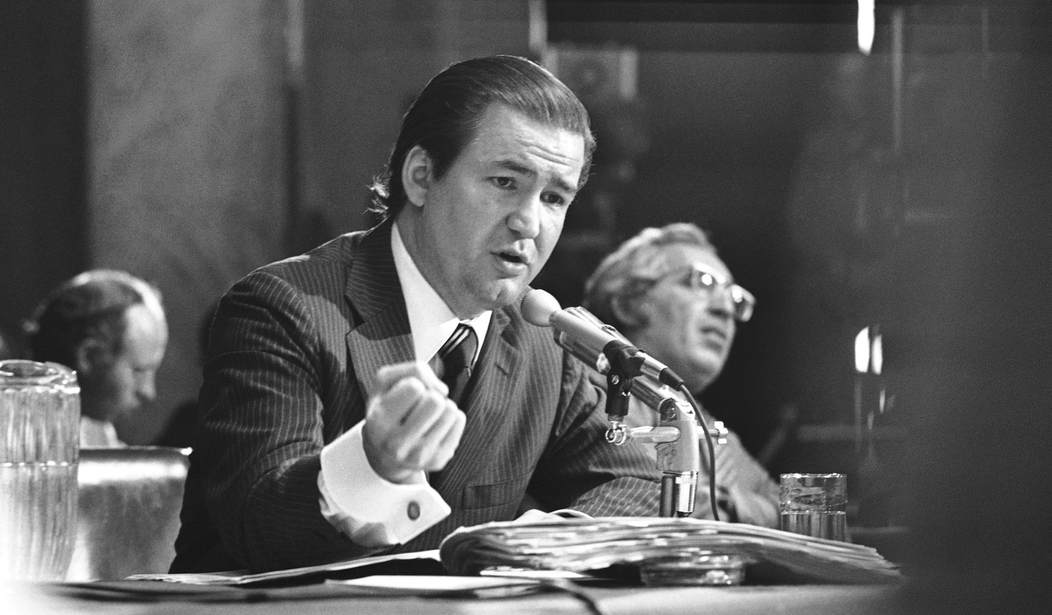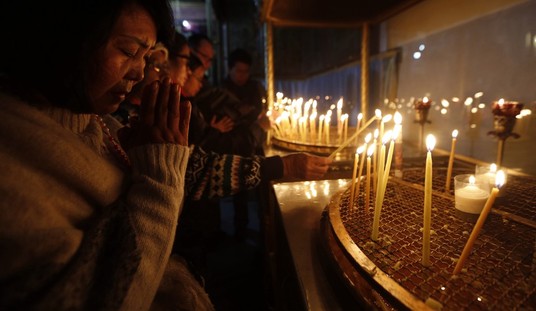WASHINGTON – Pat Buchanan, a senior advisor to late President Richard Nixon, revealed that “after our great year in ’66 with a huge victory, the future president told he me he wanted to hire someone to balance me because he thought I might be a little far to the right.”
“And so I went out and got a list of the best and brightest young writers who were moderate sort of Republicans and I came back to Nixon and said the very best one is Ray Price, former editorial editor of the Herald Tribune, which I believe had gone under by then,” Buchanan said during a recent discussion about the 1968 presidential election and Nixon’s legacy at the National Archives.
“I said, ‘One problem is he’s not a great admirer of yours and he wrote the endorsement of Lyndon Johnson in 1964.’ So Nixon told me – again, it’s an attribute of Nixon’s – he said, ‘Listen, Pat, I don’t care whether he likes me or not, likes us or agrees with us, bring him in here. After the first battle, he will be a loyalist.’ Nixon believed in that – that in the fires of battle and things, loyalties are created that don’t exist before then. People who come to work for you may look at it as a job, but with all the battles you’re in together, suddenly there’s a real bond that is created,” he added.
Buchanan described Nixon as a “centrist” and said the Republican Party never had a president “more loyal” to the party than Nixon.
“Nixon had won all the primaries and he had the party core with him, but a lot of conservatives stayed with Reagan and there was a Reagan-Rockefeller effort to break Nixon on the first ballot and hope the whole thing broke open. But I always felt that as the convention started to move to Reagan, the Rockefeller people would come to us,” Buchanan said.
“If it moved to Rockefeller, the Reagan people would come to us so that even if we didn’t win on the first ballot, we had an excellent chance of winning down the line because Nixon was the one centralist candidate who could unite the people. He had been a uniter for – for whatever people say about him, the Republican Party never had a more loyal guy who was out there constantly than Richard Nixon, and that’s the reason why he was president,” he added.
Kenneth Khachigian, former aide to Nixon and chief speechwriter to late President Ronald Reagan, called on scholars and researchers to investigate Russian influence on the 1968 presidential election between Nixon and Vice President Hubert Humphrey.
“The Russians were very much involved in trying to get Humphrey elected, so there’s a Russian collusion story that scholars ought to start looking at. The Russians very much wanted to get Hubert Humphrey elected,” he said.
Dwight Chapin, Nixon’s deputy assistant, recalled one of the president’s interactions with the late Roger Ailes, former CEO of Fox News, in 1968.
“Roger Ailes looked Nixon in the eyes and said, ‘Sir, you need to make television your friend.’ And when we left there, Mr. Nixon said, ‘I want you to arrange for that man to go to meet Ray Price,’ and it was the first stop on the line of things,” Chapin said, referring to the former chief speechwriter.
“One of the most significant things about 1968 was Nixon’s use of television. For a person who everyone thought was not good on television, and the whole myth of that spun out of the Jack Kennedy debate, Nixon mastered television,” he added.
Chapin floated the idea of presidential candidates being able to opt out of debates in the future.
“I think it would be interesting for a researcher to go in and investigate this whole thing about presidential debate commissions because our strategy in ’68 was not to debate and the way that the commission is set up now, it’s like they ordain that there are going to be these debates – and that is one of the most significant campaign strategy decisions that can be made,” he said. “And maybe candidates should decide that they’re not going to debate. I’m not against public exposure of issues, but I think it’s a campaign subject that needs to be looked into.”
PJM asked Chapin for his thoughts on comparisons that have been made between the Nixon era and President Trump’s time in office, but he declined to comment.









Join the conversation as a VIP Member